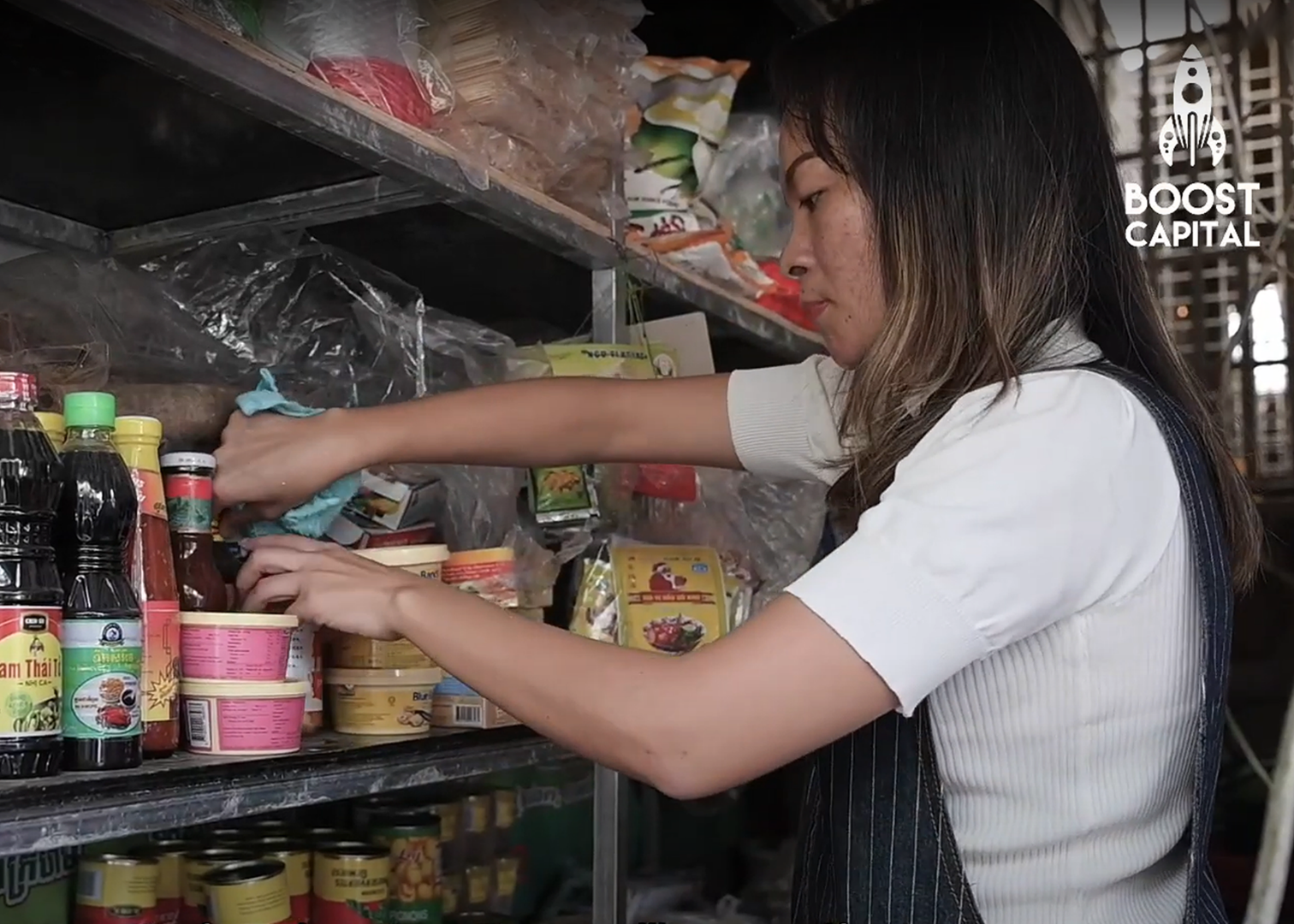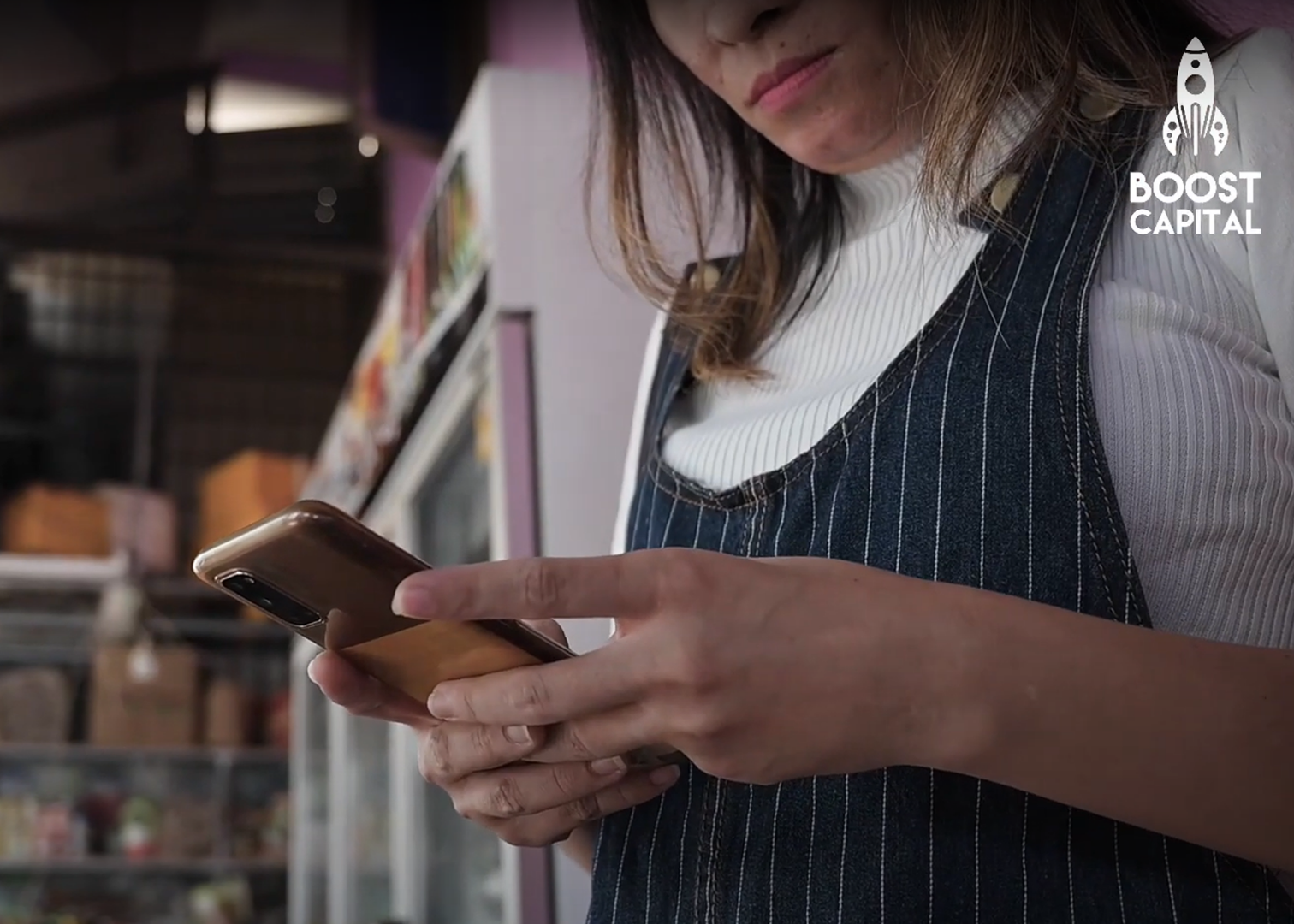A digital loan for Cambodian entrepreneurs in 10 minutes
For more information, please contact:
Georgii Nikolaenko
Learning, Knowledge Management and Communications Specialist
georgii.nikolaenko@uncdf.org
Tags

Digital microfinance can improve access to capital, increase financial inclusion, and improve livelihoods, especially for the owners of micro, small and medium enterprises (MSMEs). However, in Cambodia, financial services are primarily delivered in-person, which makes accessing finance inconvenient, expensive and often inaccessible for many business owners, particularly women.
Boost Capital is a technology start-up partner of the UN Capital Development Fund (UNCDF) and grantee of the Women Enterprise Recovery Fund (WERF), which was launched in part by UNCDF. Through the WERF, Boost Capital built a state-of-the-art and first-of-its-kind technology platform in Cambodia, which allows MSMEs to apply for and receive a loan using only a smartphone. Boost Capital leverages business income data in place of collateral and has established strong partnerships with financial institutions. As a result, even MSMEs that cannot pledge assets to secure a loan can now have the opportunity to borrow money to expand their businesses.
During her visit to Cambodia, Ms Preeti Sinha, UNCDF Executive Secretary, met with Mr Gordon Peters, Co-founder and CEO of Boost Capital. Ms Sinha commended Boost Capital’s success in working with multiple financial institutions to disburse US$1.7 million in loans to MSME owners in the last year. She also congratulated Mr Peters and his team for registering 96,000 MSMEs on Boost Capital’s digital lending platform, including 68,000 MSMEs led by women. Through WERF’s provision of performance-based grants and technical assistance, Boost Capital also raised over $400,000 in external capital to reach more clients in the last mile.
How do MSMEs get a digital loan?
Running a small business is a 24/7 job so convenience and efficiency are essential to competitiveness. Going to a physical branch of a financial institution to apply for a loan is time-consuming and difficult. And when there is time to visit these institutions, meeting the requirements for a loan from a traditional lender can be rigid and complicated, often excluding small businesses and entrepreneurs. This is particularly important for women-led MSMEs in Cambodia who often face barriers in taking out a loan due to social and gender norms.
With financial and technical support from WERF, Boost Capital’s digitized loan application, disbursement and repayment process allows women to apply for and receive a loan anytime, anywhere, and at a lower cost than traditional lenders. Financial institutions that have partnered with Boost Capital to provide digitally enabled loans see digitalization as the future of their sector, which helps to serve their clients better. When clients are happy with their service, financial service providers also benefit by keeping their existing clients and attracting new customers.
Clients can connect with Boost Capital’s partners—microfinance institutions (MFIs) and banks—through chat-based systems on Facebook and Telegram which are widely used in Cambodia. They do not need to download and learn an entirely new mobile application, a high barrier to entry for other digital lending providers. Once the applicant starts talking to a chatbot on a messaging application, users can get their loan approved in as short as ten minutes – instead of a few days. All they need is to respond to a small number of questions, upload their documents and video chat with a customer representative for a couple of minutes. Informal entrepreneurs can describe their business income in an intuitively structured chat rather than waiting for an in-person meeting and site visit from a traditional bank. Boost Capital’s solution, ultimately, delivers a more inclusive and faster process to apply for a loan.

Empowering clients with digital financial capabilities
Improving access to finance is only part of the equation. Genuine economic empowerment requires an integrated approach that gives consumers the skills and confidence to access and use digital services. Financial capabilities gaps are often more pronounced among women entrepreneurs, despite increasing awareness of their need for financial literacy to plan and actively manage their personal as well as business finances.
Boost Capital’s innovative chat-based system offers digital and financial literacy educational tools to its clients, primarily focusing on women-led MSMEs. More than 21,000 entrepreneurs have already strengthened their digital and financial capabilities with local-language financial education modules on Boost Capital’s smartphone-based platform. In addition, clients have an opportunity to further their financial education with weekly deep-dive video sessions. Entrepreneurs learn about a range of advanced financial education topics from inventory management to marketing, specifically tailored for business owners.
Technological and financial innovation for an inclusive digital economy
For women-led MSMEs and the market in Cambodia, digital lending platforms and digital financial capabilities training—like Boost Capital’s, which now has the potential to be scaled with the support of WERF and UNCDF—help promote an economy and society more inclusive and resilient to external shocks. As the country continues its recovery from the pandemic, increasing access to finance and financial literacy for women-led MSMEs will accelerate Cambodia’s path to building an inclusive digital economy that leaves no one behind.
--
About Boost Capital
Boost Platform enables loans and financial services through smartphones, on customer-friendly, sustainable terms. Boost created the technology to offer microfinance loans through smartphones, cheaper and easier. Partners using Boost technology can onboard customers and receive loan applications digitally - the service is faster than traditional micro-lenders with no need to download an app. Boost leverages different existing social media chat apps and their Chatbot supports loan applications, and their fully digital processing makes it accessible anytime and anywhere on a mobile. Boost has already engaged with over 300,000 customers, and over $3 million in loans have been disbursed digitally using Boost Platform.
About Women Enterprise Recovery Fund
The Women Enterprise Recovery Fund is funded by the Dutch Entrepreneurial Development Bank (FMO), the Government of Canada, and Visa Inc. The Fund is jointly implemented by the United Nations Economic and Social Commission for Asia and the Pacific (ESCAP) Catalyzing Women’s Entrepreneurship programme in partnership with UNCDF under its ‘no one left behind in the digital era’ strategy. The Fund is hosted by UNCDF’s Fund Facility Investment mechanism, which is supported by the Australian Government.
